Q
What is the average lifespan of a VW Tiguan 2020?
The average lifespan of the 2020 Volkswagen Tiguan is usually around 12 to 15 years. With regular maintenance and good driving habits, it can even last for over 200,000 kilometers. The specific lifespan depends on the usage environment, maintenance frequency, and driving style. In Malaysia, the hot and humid climate may have a certain impact on rubber parts and electronic components. It is recommended to conduct maintenance every 10,000 kilometers or 12 months, with a focus on the cooling system, air - conditioning, and chassis rust prevention.
The Tiguan is equipped with the EA888 turbocharged engine and DSG gearbox, which have mature technologies. However, it is necessary to strictly follow the manufacturer's规定 (should be "stipulated", but I keep it as in your text) oil and filter replacement cycles. It's worth noting that the longevity of German - made cars is highly related to the quality of maintenance. Using original parts and certified oil can significantly improve durability. For Malaysian car owners, it is particularly important to regularly check the sunroof drain pipes (to prevent blockage during the rainy season) and the battery health (high temperatures can easily cause battery wear).
Japanese SUVs in the same class may focus more on low maintenance costs, while the Tiguan stands out in terms of handling and high - speed stability. This difference reflects the different design focuses of different brands, and car owners should make a choice based on their own needs.
Special Disclaimer: This content is published by users and does not represent the views or position of PCauto.
Related Q&A
Q
What are the different versions of the 2020 VW Tiguan?
The 2020 Volkswagen Tiguan comes in multiple versions, including the 1.4TSI Highline, 1.4TSI UNITED, and 1.4TSI JOIN. These versions perform similarly in many aspects. They are all equipped with a 1.4T turbocharged engine, with a maximum horsepower of 150PS. The official 0-100km/h acceleration time is 9.7 seconds, and the official combined fuel consumption is 6.7L/100km. All of them use front-wheel drive and a DCT gearbox.
In terms of safety features, ABS anti - lock braking, vehicle stability control, lane departure warning, and active braking are all standard. There are also six airbags. For in-car comfort features, a multifunctional steering wheel, steering wheel paddles, a 220V/230V power supply, and keyless entry are all included.
However, there are differences in price. The 1.4TSI Highline is priced at RM 162,678, the 1.4TSI UNITED at RM 166,678, and the 1.4TSI JOIN at RM 172,678. Consumers can make a choice based on their budget and needs.
Q
Why is the check engine light on in my 2020 VW Tiguan?
The engine warning light on your 2020 Volkswagen Tiguan may come on due to various reasons. The most common ones are issues related to the emission system, such as a faulty oxygen sensor, reduced efficiency of the catalytic converter, or an untightened fuel cap. It could also be caused by decreased combustion efficiency due to aged spark plugs, a faulty ignition coil, or an abnormal air flow meter. In the hot and humid climate of Malaysia, moisture in electronic components or carbon buildup may also trigger the warning light.
It is recommended to use an OBD-II diagnostic scanner as soon as possible to read the fault codes and accurately locate the problem. If you can't perform the detection for the moment, you can first check if the fuel cap is properly sealed and observe if there are accompanying symptoms such as vehicle shaking or power loss.
It's worth noting that the engine management system of modern vehicles is very sensitive, and even minor faults will trigger the warning light. Regular maintenance (such as replacing spark plugs every 10,000 kilometers and cleaning the throttle body) can effectively prevent such problems. If the warning light is flashing, you must stop the vehicle immediately for repairs to avoid damaging the catalytic converter. For turbo-charged models like the Tiguan, more attention should be paid to fuel quality and timely oil changes.
Q
How to check mileage on a 2020 Tiguan?
To check the mileage of a 2020 Tiguan, the simplest way is to start the vehicle and look at the digital display on the dashboard. The mileage usually appears near the tachometer or speedometer. For some models, you may need to switch the display information through the multi-function buttons on the steering wheel. If you can't find it, you can refer to the owner's manual to confirm the specific operation steps.
For Malaysian owners, they can also use professional diagnostic equipment at the official authorized service centers of Volkswagen Malaysia to read the vehicle's complete mileage records. This is especially useful when buying a second-hand Tiguan to verify the authenticity of the mileage.
It's worth mentioning that modern vehicles usually store mileage data in the ECU (Engine Control Unit). Even if the dashboard is replaced, the real mileage can still be detected by professional equipment. Therefore, it is recommended to conduct a comprehensive inspection before buying a car.
In addition, regular maintenance records are also an important basis for verifying the mileage. Volkswagen owners in Malaysia can query the maintenance history through the MyVW mobile app or by contacting the original manufacturer to ensure that the vehicle's mileage matches the maintenance records. This is very helpful for maintaining the vehicle's residual value.
Q
How many miles can a 2020 Tiguan last?
Under normal maintenance and usage conditions, the 2020 Volkswagen Tiguan can usually travel 200,000 to 300,000 kilometers or even more. The specific lifespan depends on driving habits, maintenance frequency, as well as the road conditions and climate environment in Malaysia. Regularly changing the engine oil, filters, inspecting the braking system, and maintaining the transmission fluid are crucial. Especially in Malaysia's hot and humid climate, rubber parts and electronic components tend to age faster, so it is recommended to shorten the maintenance cycle to extend the vehicle's lifespan. For turbo-charged engine models, avoiding aggressive driving right after a cold start and regularly cleaning carbon deposits can effectively protect the engine. It's worth noting that German cars have relatively complex electronic systems. If a malfunction indicator light comes on, it should be repaired as soon as possible. Japanese SUVs in the same class may have simpler mechanical structures, but the Tiguan's chassis feel and high-speed stability are its advantages. Malaysian users should also check for rust on chassis components after driving through water during the rainy season and keep the battery charged when the vehicle is parked for a long time. These details can significantly affect the vehicle's service life.
Q
Is the 2020 Tiguan being recalled?
Regarding the issue of whether the 2020 Volkswagen Tiguan has been recalled, there is currently no officially announced voluntary recall notice for this model year in the Malaysian market. However, it is recommended that owners regularly check the vehicle status through the recall inquiry page on the official website of Volkswagen Malaysia or at authorized service centers, as some global recalls may involve vehicles from specific production batches. As a preventive measure, owners can keep an eye on common recall items such as the fuel pump control module or airbags, which have been recalled in some international markets due to potential risks. Malaysian owners also need to pay attention to the impact of the local climate on the vehicle, such as maintaining the electrical system in rainy conditions and regularly changing the brake fluid. If a recall notice is received, owners should contact an authorized repair shop as soon as possible for free inspections and repairs. This not only shows the brand's emphasis on safety but also reflects the protection of the rights and interests of consumers in Malaysia. During routine maintenance, owners can ask the technicians to check for any outstanding recall items to ensure that their vehicles are always in optimal condition.
Q
What is the value of a 2020 VW Tiguan?
In 2020, the value of the Volkswagen Tiguan in the Malaysian used-car market ranged approximately between RM80,000 and RM120,000. The specific price depends on factors such as the vehicle's condition, mileage, configuration version, and maintenance records. Higher-end R-Line models or those with more optional features will be priced higher.
As a popular SUV under the Volkswagen brand, the Tiguan enjoys good liquidity in the local used-car market. It owes this to its solid German-style chassis tuning, the fuel efficiency of its 1.4-liter TSI turbocharged engine, and its practical interior space. It's especially suitable for family users or those who pursue a high-quality driving experience.
It's worth noting that when buying a used Tiguan, it's advisable to first check the smoothness of the DSG dual-clutch transmission's gear shifting and the condition of its mechatronic unit. Also, make sure the original factory maintenance records are complete, as these details can significantly affect the subsequent usage costs.
If the budget is similar, consumers can also compare it with Japanese models in the same class, such as the Honda CR-V or the Mazda CX-5. Different brands have their own advantages in terms of maintenance convenience and parts prices. It's recommended to take test drives based on your own vehicle usage needs before making a decision.
Q
How safe is the 2020 Volkswagen Tiguan?
The 2020 Volkswagen Tiguan performs well in terms of safety. It is equipped with a number of active and passive safety technologies, including adaptive cruise control, lane-keeping assist, automatic emergency braking, and blind-spot monitoring. These features can effectively enhance driving safety in daily driving, especially in Malaysia's complex traffic environment. The vehicle received a five-star rating in the European NCAP crash test, indicating excellent performance in occupant protection. The body structure is made of high-strength steel, which can effectively absorb and disperse collision energy. At the same time, multiple airbags are standard, providing all-round protection for passengers. For Malaysian consumers, the safety configuration of the Tiguan is above average among vehicles in the same class. In particular, its driver assistance systems can help reduce the risks of fatigue driving and unexpected situations. It's worth noting that the safety performance of any vehicle also depends on the driver's habits and regular maintenance. It is recommended that car owners conduct regular vehicle inspections and familiarize themselves with the usage of various safety features to maximize their protective effects.
Q
Is a Tiguan 2020 good for long drive?
The 2020 Volkswagen Tiguan is an SUV that's perfect for long-distance driving, especially performing excellently on Malaysian roads. It's equipped with either a 1.4-liter TSI or a 2.0-liter TSI turbocharged engine, which provides ample power and good fuel economy. This makes it suitable for long-term driving on the North-South Expressway or rural roads.
The chassis is tuned for comfort, effectively filtering out road bumps. Coupled with spacious seats and plenty of legroom, it significantly reduces fatigue during long drives. Moreover, the Tiguan has excellent sound insulation. When driving at high speeds, the noise inside the car is well-controlled. Paired with advanced driver-assistance systems such as adaptive cruise control and lane-keeping function, it further enhances driving safety and convenience.
The trunk has enough space to hold luggage for a family trip. If you often need to travel across states, the 2020 Tiguan will be a reliable choice. It's worth mentioning that the hot and rainy climate in Malaysia places high demands on a vehicle's heat dissipation and air-conditioning systems. The Tiguan's automatic climate control and efficient cooling system can fully handle these challenges. Among vehicles in the same class, its overall performance is quite well-balanced.
Q
Are there any recalls on a 2020 Volkswagen Tiguan?
According to records, the 2020 Volkswagen Tiguan was recalled in the Malaysian market due to potential safety hazards. The recall mainly involved software issues with the fuel pump control unit that might cause the vehicle to stall while driving, as well as possible manufacturing defects in the seat belt pre-tensioners of some vehicles. Car owners can check the specific recall status by entering the Vehicle Identification Number (VIN) on the official website of Volkswagen Malaysia. It is recommended that car owners regularly pay attention to notifications from the Malaysian Road Transport Department (JPJ) or authorized dealers. This kind of recall usually offers free maintenance services.
For Tiguan owners, besides paying attention to recall information, they should also develop the habit of regularly checking the vehicle's maintenance records. In particular, they need to check the oil condition of the turbocharged engine and the software updates of the DSG gearbox. These details can effectively extend the vehicle's lifespan. If you need further confirmation, you can directly contact the nearest authorized Volkswagen service center in Malaysia. They can provide professional vehicle health inspection services to ensure that your car meets the latest safety standards.
Q
What kind of oil does a 2020 Tiguan take?
For the 2020 Volkswagen Tiguan in Malaysia, it is recommended to use fully synthetic engine oil that meets the VW 502 00 or VW 504 00 standards. The viscosity is usually 5W-30 or 5W-40. The specific choice depends on the local climate and driving conditions. In hot and rainy Malaysia, 5W-40 is recommended to ensure high-temperature protection. If the vehicle is equipped with a diesel engine (such as the TDI version), the oil should meet the VW 507 00 standard.
Changing the engine oil regularly every 15,000 kilometers or 12 months is crucial to maintaining the engine's performance. However, if you often drive short distances or use the vehicle under high-intensity conditions, you can reduce the interval to 10,000 kilometers. It's worth noting that the quality of the original-factory oil filter directly affects the lubrication effect. It is recommended to replace the original-factory filter when changing the engine oil.
Although fully synthetic engine oil is more expensive, its excellent oxidation resistance and cleaning ability can effectively extend the engine's lifespan, which is especially suitable for turbo-charged models like the Tiguan. Car owners can refer to the "Engine Oil" section in the vehicle manual or check the markings on the oil filler cap to confirm the specific specifications. If you're not sure, you can also consult the authorized Volkswagen service centers. There are professional after-sales outlets in major Malaysian cities such as Kuala Lumpur and Penang to provide inspection services.
Latest Q&A
Q
what type of car is porsche 911
The Porsche 911 is a legendary high-performance sports car from German automaker Porsche. It's that iconic rear-engined, rear-wheel or all-wheel drive luxury sportster that's been turning heads and setting standards since 1963. Here in Malaysia, the 911 has a massive following, and it's easy to see why. Drivers love its razor-sharp handling, the punch from its flat-six turbocharged engine, and that timeless design that blends classic cues with modern flair – it's absolutely perfect for cruising those coastal roads in Penang or Johor.
Porsche offers the 911 in a bunch of flavors to suit different tastes. There's the Carrera, which is the solid base model, then the Turbo for those who crave serious speed, and the track-focused GT3 for the ultimate driving purists. What really stands out about the 911, though, is how it manages to keep that classic rear-engine layout while still being totally usable every day – thanks to smart tech like the PDK dual-clutch gearbox and adaptive suspension. That balance is why it's such a big deal in Malaysia's premium sports car scene. And if you do take the plunge, Porsche's got your back with official service centers in cities like Kuala Lumpur, so you know you're covered.
Q
how many cylinders in a porsche 911
The Porsche 911, that iconic sports car staple, has seen its engine setups evolve across generations and models, but let's be real—most of 'em rock that flat-six (H6) heart. It's like the 911's DNA, right? Take the current 992 series: the Carrera and Turbo models? They're packing 3.0L and 3.7L twin-turbo flat-sixes, respectively. This layout isn't just for show; it drops the center of gravity big time, making the car stick to the tarmac like glue and handle like a dream. And man, flat-sixes are loved for how smooth they are and how they deliver that power efficiently—total game-changer when you're carving up Malaysia's twisty hill roads or putting the hammer down on the highway.
Now, if you're all about that raw, unfiltered experience, the GT3 lineup is where it's at. Those bad boys stick with naturally aspirated engines, still six cylinders, of course. The result? Power that builds nice and linear, and hitting those high revs? Pure thrills. For Malaysian enthusiasts, picking a 911 boils down to what you crave. Daily driver? Track toy? Whatever it is, there's a six-cylinder 911 out there ready to tackle it all.
Q
how fast is the porsche 911 gt3 rs
The Porsche 911 GT3 RS is a high-performance sports car built specifically for the track. It tops out at around 296 km/h and sprints from 0 to 100 km/h in just 3.2 seconds. That kind of pace comes courtesy of its 4.0-liter naturally aspirated flat-six engine, which cranks out 525 horsepower. Pair that with lightweight construction and an advanced aerodynamics package, and you’ve got a car that generates serious downforce and stability at high speeds.
For Malaysian petrolheads, this thing really shines on the circuit – it can even push its limits on challenging tracks like Sepang International Circuit. One thing to note though: while that naturally aspirated engine goes absolutely berserk in the upper rev range, it demands some tender loving care. Especially in Malaysia’s hot and humid climate, keeping a close eye on oil levels and the cooling system with regular checks is a must.
Also, the GT3 RS features a firm suspension setup, which is perfect for carving up track days but might feel a bit jittery on everyday roads. But hey, that’s all part of the package when you’re chasing ultimate handling. If this kind of high-performance machine floats your boat, keep an eye on rivals like the Lamborghini Huracán STO or Ferrari 488 Pista. They’re all track-focused beasts too, each with their own unique driving personalities and engineering philosophies.
Q
why is porsche 911 so expensive
The Porsche 911 commands such a premium price tag primarily because it's a masterful blend of the brand's rich heritage, exceptional engineering, and that one-of-a-kind driving feel we all crave. As Porsche's flagship, the 911 is built to incredibly high standards – think that rear-mounted flat-six engine and a chassis tuned to absolute precision. These aren't just tech specs; they're what make the 911 tick, but they also drive up the production costs. Then there's the extensive use of lightweight materials in the body, stuff like aluminum and carbon fiber, which further bumps up the price. Over in Malaysia, let's not forget the import duties and consumption taxes that can really inflate the final sticker price.
But here's the thing – the 911 also holds its value like a champ, thanks to its timeless design and consistently strong market demand. For Malaysian enthusiasts, it's more than just a sports car; it's a status symbol. That brand cachet and relative exclusivity play their part in keeping those prices up too. If you're into high-performance machines, the 911's unique allure is definitely worth a serious look. But hey, it doesn't hurt to shop around either. The Nissan GT-R or Mercedes-AMG GT, for example, offer similar thrills at different points in the price spectrum.
Q
how much is a pink porsche 911
In Malaysia, the exact price tag of a pink Porsche 911 hinges on the model year, specs, optional extras, and market demand. A brand-new base model typically starts between RM1 million to RM1.5 million. But if you're eyeing that custom pink paint job—think "Pink Pig" livery or special hues like Rubystar Neo—be prepared to shell out an extra RM50k to RM150k for the paint option.
For used cars, a 3- to 5-year-old pink 911 will likely set you back around RM700k to RM1 million. However, rare colorways or limited editions can command a 20%+ premium. It’s worth noting Porsche’s Exclusive Manufaktur program lets owners personalize exterior colors and interiors—these highly customized rides often hold more value and have stronger collector appeal.
Malaysian buyers should also factor in import duties (roughly 105%-200% based on engine displacement), GST, and AP permit costs—these can easily double the final on-road price. If you’re planning to hold onto it long-term, buying through official Porsche Malaysia channels is recommended to secure full warranty coverage. While special-colored cars might take longer to sell when you decide to part ways, their unique shades often translate to better retained value among specific buyer circles.
View MoreRelated News

Because of lack of funds to upgrade the factory, Volkswagen postponed the release of ID.Golf and ID.Roc
JamesSep 17, 2025

Volkswagen Locks Vehicle Horsepower, Unlocks Full Power via Subscription
JohnAug 19, 2025
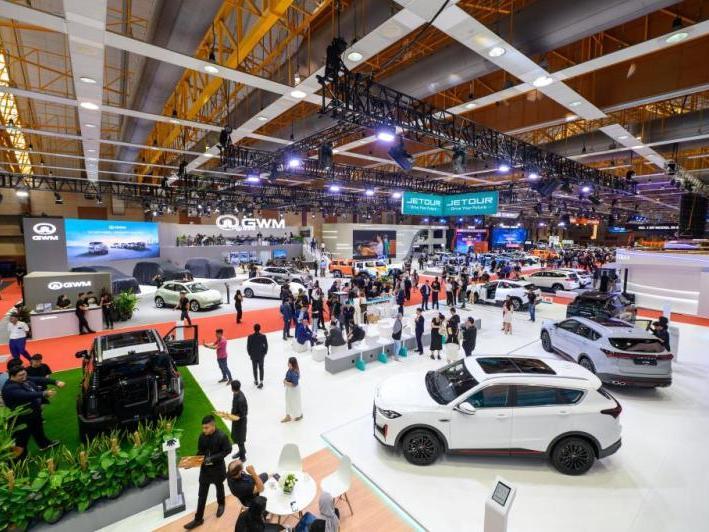
Summarizing the 2025 Malaysia Auto Show, a large number of new cars were launched in Malaysia this year.
MichaelMay 12, 2025

Volkswagen ID.Buzz's Bizarre Recall: Third-Row Seats Too Wide, Need to Be Modified
Kevin WongMay 8, 2025
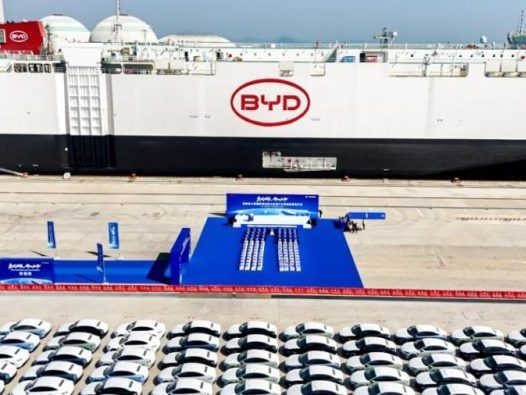
BYD Sets Global Sales Target of 5.5 Million Units for 2025
RobertMar 26, 2025
View More



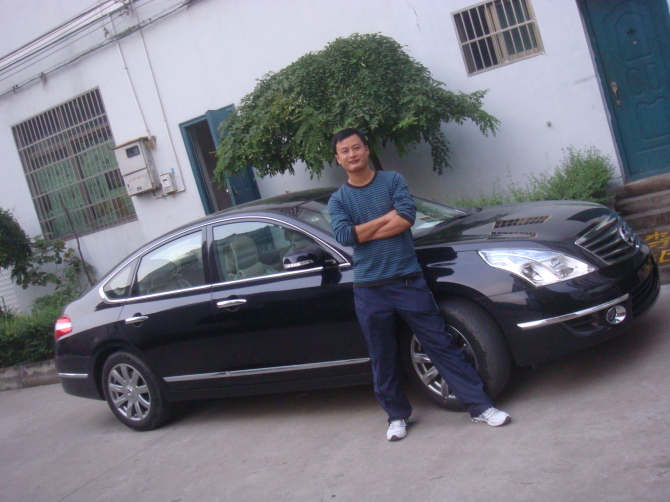

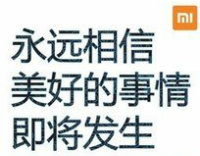






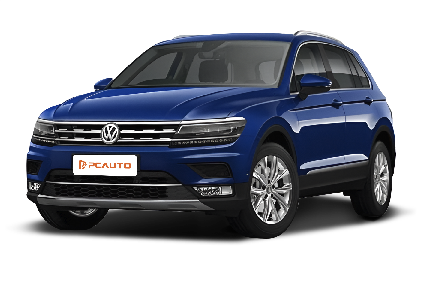





Pros
Cons